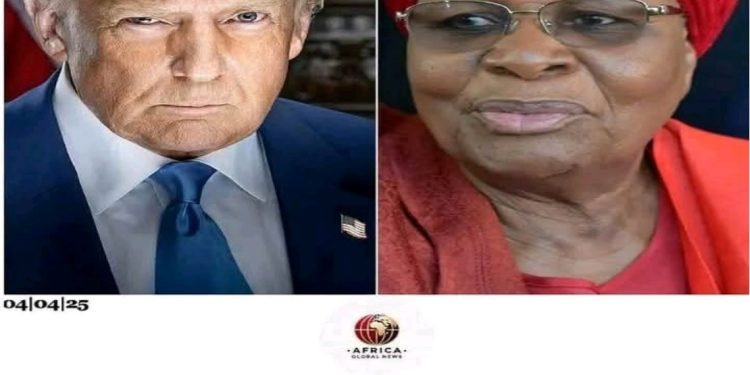By Hassan Osman Kargbo
In a major shift in policy, the newly inaugurated Namibian President, Dr. Netumbo Nandi-Ndaitwah, has announced that starting this April 2025, U.S. citizens entering Namibia would be required to obtain a visa. The government’s decision comes as part of a broader move to assert control over the country’s vast mineral resources, including diamonds, gold, uranium, and copper, and to ensure that foreign nationals operating in the country do so within the framework of legal and regulated practices.
The announcement has sparked significant controversy, particularly as it targets over 500 U.S. citizens who have been working in Namibia’s mining sector without the necessary visas. These individuals, many of whom are employed in the extraction of diamonds, a critical resource for Namibia’s economy, have been given a 24-hour ultimatum to leave the country or face forced removal starting tomorrow.
The Namibian government has made it clear that any U.S. citizen found in the country without a fully approved visa will be treated as an “illegal alien” and subjected to the same treatment that former U.S. President Donald Trump famously advocated for African immigrants in the United States. The tone of the government’s statement reflects a hard-line approach to foreign nationals operating outside the established legal frameworks.
The new visa policy signals Namibia’s growing desire to take full control of its mineral wealth, with particular emphasis on its diamond industry. As one of the world’s top diamond producers, Namibia has long been a key player in the global mining sector, with numerous international companies involved in the extraction of precious minerals. However, the Namibian government has expressed concerns that foreign nationals, including U.S. citizens, have been operating without the appropriate documentation, undermining the country’s sovereignty and ability to benefit fully from its natural resources.
In a statement issued by the Ministry of Home Affairs, Dr. Nandi-Ndaitwah emphasized the importance of regulating foreign presence in the country’s mining sector. “Namibia’s resources belong to its people, and we are committed to ensuring that all foreign nationals who operate here do so legally and contribute positively to our nation’s development,” the President said. “We cannot allow any exploitation of our resources without proper oversight, and that includes ensuring that those working here comply with our visa requirements.”
The expulsion order has caused an immediate stir among the expatriates working in Namibia’s mining sector. Many U.S. nationals, who have been employed in the country for years, now face the prospect of being forced out of their livelihoods. “I’ve been here for over a decade, and this is a huge shock,” said one miner, who wished to remain anonymous. “We’ve been working in some of the most challenging environments in the world, and now, just like that, we’re being told to leave. It’s hard to understand.”
Namibia’s move is also seen as a step toward greater self-sufficiency and control of its mining resources. The country has long been reliant on foreign expertise and capital, but President Nandi-Ndaitwah’s regime appears intent on reshaping the relationship between Namibia and foreign investors. The full nationalization of diamond mines is part of a broader strategy to secure more benefits from the country’s mineral wealth and create more opportunities for Namibians in the mining sector.
As tensions rise over the new visa policy, many are left wondering how this will affect Namibia’s international relationships and its standing in the global mining industry. The country’s diplomatic ties with the U.S. are likely to face scrutiny in the coming months, as both sides navigate the fallout from this new policy.











